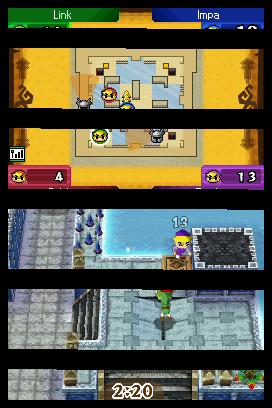Why you can trust GamesRadar+
The best of the new weapons is the Whirlwind. A strange contraption that uses the mic, it lets Link solve puzzles with gale force winds. It’s an awesome tool and one that forges a real connection between you and your environment. This is never clearer than in the second temple, where you blow yourself around on precarious platforms to avoid deathly cold water.
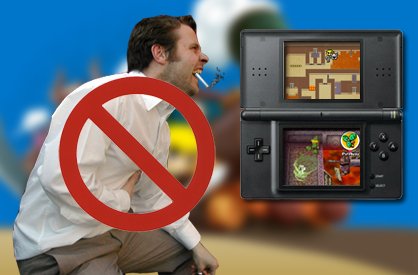
Above: You need some serious lung capacity for all of Zelda's microphone puzzles. Smokers need not apply
Like the last DS title, you have to return to a central structure after you beat each temple to collect glyphs to access the next one (though thankfully this structure is free of Hourglass' restrictive time limits). Called the Tower of Spirits, it’s here the clever co-op stuff with the princess’ ghost kicks in.
Tag-team supreme
Because the tower is full of knight-like Phantoms, which can kill Link in one hit, you need to work with Zelda to progress. Luckily she can possess these big bastards and once you’ve done this, Zelda acts like your own personal, two tonne bodyguard.
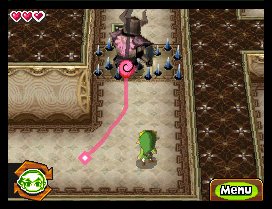
Above: Working with Zelda is always rewarding
She’s a bit like a loyal lapdog. Draw a line around the map and she’ll go wherever you tell her to. Being a multi-talented girl she can also distract enemies while you stab them in the spine, and she can even ferry you across inaccessible areas (like pits of fire). After years of having to save the princess from peril, it’s nice to see the fragile slipper on the other royal foot.
Overall verdict
The best compliment we can pay Spirit Tracks is it feels like a proper full-fat Zelda game. This isn’t some stripped-down poor cousin to the console entries. Instead, it’s the perfect example of how a developer can successfully squeeze a console series onto a handheld by using the hardware’s strengths.
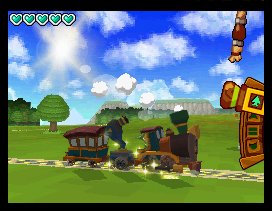
Above: Making your train whistle is a constant guilty pleasure
It might not look as good as its bigger relatives (prepare yourself for some fugly ass 2D textures). But in terms of personality, bright ideas and charm, this dwarfs almost every other game from 2009.
Is it better than...

Yes. Although it keeps Hourglass’ central temple mechanic, it removes its restrictive time limits, so it’s far less frustrating. The world is also more varied, with greater contrasting environments to keep things fresh. Most importantly, Link’s Train is more fun to use than the boat from the last game, as it requires loads of player input.
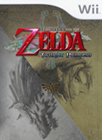
The Legend of Zelda: Twilight Princess? No. While Spirit Tracks’ puzzles and weapons are inventive, the complexity of its world, and particularly its dungeons, simply can’t match up to the Wii game. Twilight Princess’ narrative is also darker and more interesting than the DS game’s relatively simple tale. Although, for our moolah, Spirit Tracks' puzzles use the touchscreen more imaginatively than Twilight ever used the Wiimote.

Metroid Prime Hunters? Yes. Thanks to Metroid losing most of the exploration elements that linked the two series in the past, Hunters is a much simpler, one dimensional game next to Spirit Tracks. Both titles use the stylus more effectively than 95% of the other games on the system, but we’d say Zelda’s controls just edge it because of their ingenuity. In the looks department, though, Metroid wins hands down.
Just for you, Metacritic
It boils down to this: Spirit Tracks is the most consistently inventive game on the DS, with the best touchscreen controls on the system.
Dec 7, 2009
More info
| Genre | Adventure |
| Description | Another touch screen-focused adventure for the hero of Hyrule, this time based around riding trains. Seriously. |
| Franchise name | Legend of Zelda |
| UK franchise name | Legend of Zelda |
| Platform | "DS" |
| US censor rating | "Rating Pending" |
| UK censor rating | "Rating Pending" |

David has worked for Future under many guises, including for GamesRadar+ and the Official Xbox Magazine. He is currently the Google Stories Editor for GamesRadar and PC Gamer, which sees him making daily video Stories content for both websites. David also regularly writes features, guides, and reviews for both brands too.
